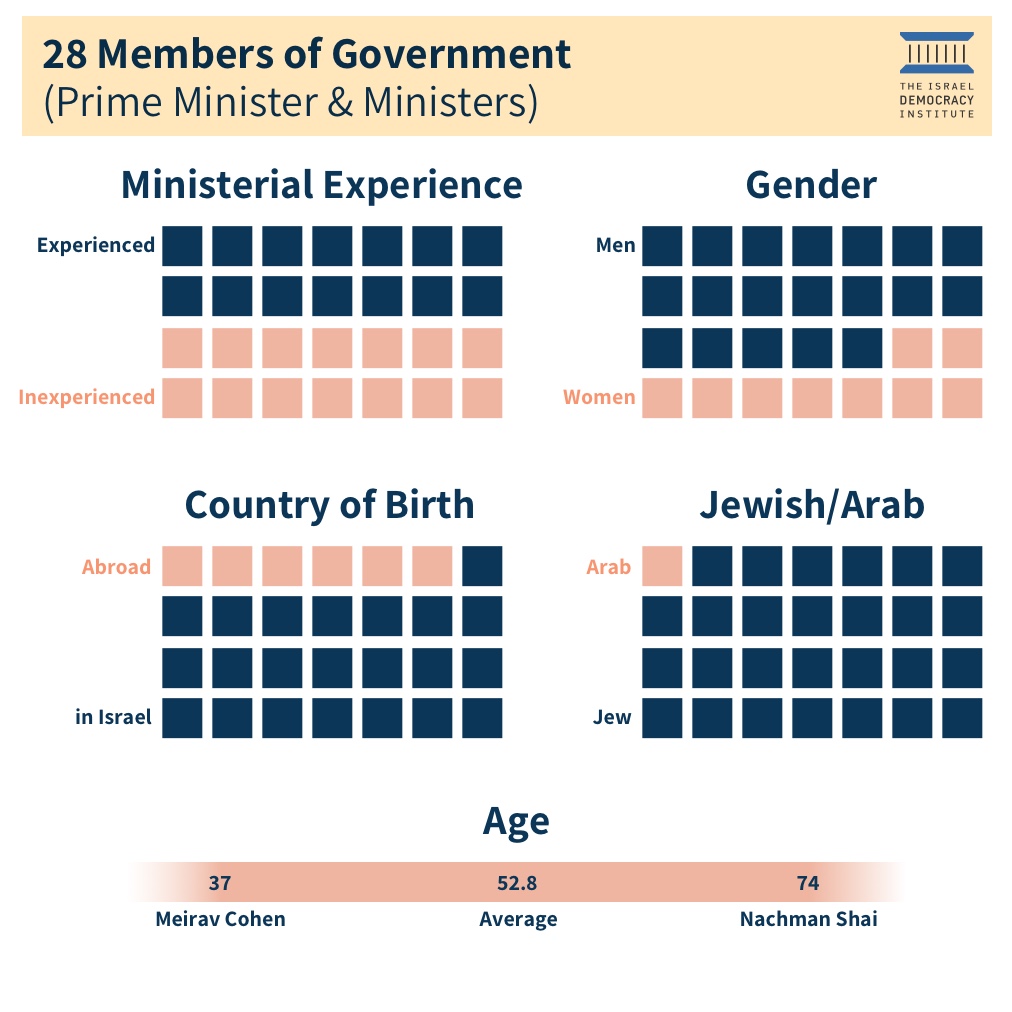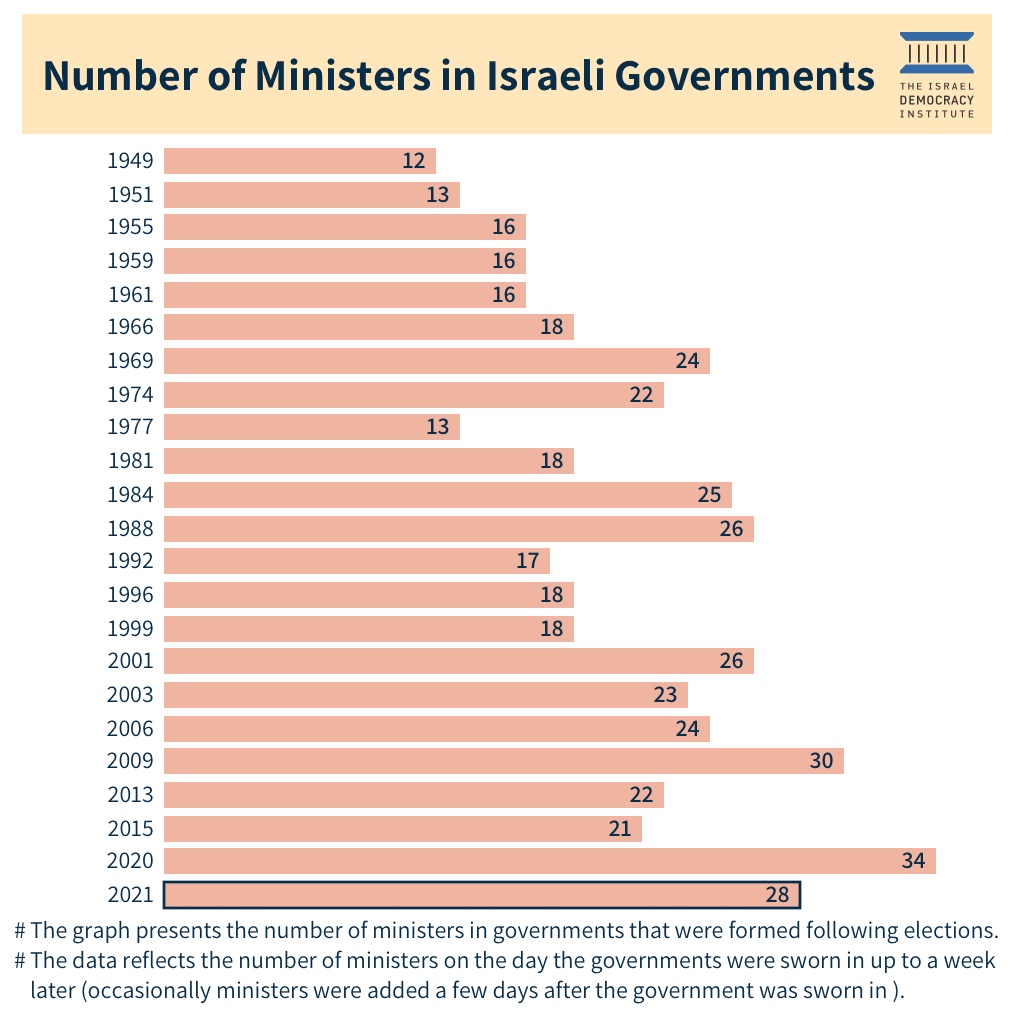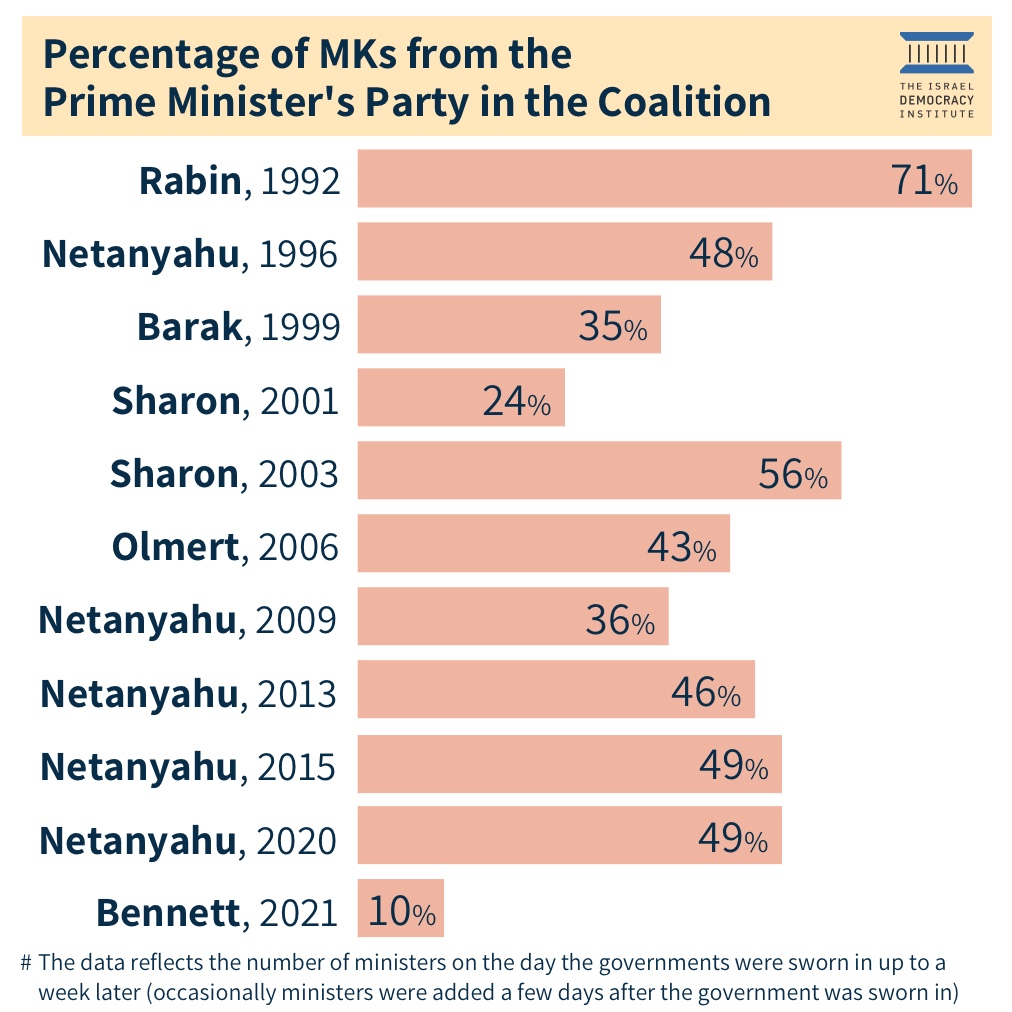Israel's 36th Government – By the Numbers
With the Knesset set to vote on a new government on Sunday, Prof. Ofer Kenig, a research fellow at the Israel Democracy Institute, presents an following analysis of the proposed government.

Flash 90
The time it took to form the 36th coalition government will be the second longest since the establishment of the state; the relative size of the prime minister's faction in the coalition will be the smallest ever; there is a record number of women in the government; and also - on the average age of the cabinet members and their previous ministerial experience
The time it took to put together the coalition government: Assuming that the government is sworn in on the set date, it took 80 days – second in length only to the 7th government (headed by Ben-Gurion) which was formed in 1955. Prof. Kenig notes that the length of time it takes to form a government has been on a steady upward trend over the past two decades, and it is possible that the explanation for this lies in the 'constructive no-confidence; vote mechanism that has been adopted, which makes it very difficult to overthrow a government and perhaps causes the parties to prolong their deliberation more before reaching a final agreement on forming a government.
The Prime Minister’s Party: The relative size of the prime minister's faction within the coalition will be the lowest ever, standing at only 10% (6 out of 61). Prof. Kenig points out that although prime ministers usually come from large parties, the possibility of a government headed by from the leader of a small party certainly exists in other countries. In Belgium and Latvia, for example, such prime ministers are currently in office.
Number of ministers: The incoming government will be the third largest so far in terms of the number of ministers. It was preceded by the second Netanyahu government (2009), which had 30 ministers at the time of its establishment, and the outgoing government (2020), which set out with 34 ministers. Prof. Kenig notes that "it is disappointing to see that the government of change' has not announced a change in terms of the large number of ministers and the number of redundant ministries."
Diversity: Prof. Kenig notes that the new government will include a record number of 9 women, almost a third of all government members. This is an encouraging statistic, and yet, none of the ministers have been appointed to one of the 'top-tier' ministries (Finance, Defense and Foreign Affairs), and the proportion of women in Israeli governments is still low compared to most OECD countries. In addition, the government will include 6 ministers wearing kippahs, a Muslim minister (the second only in history), 6 of the minister will be foreign-born, including 3 ministers born in the former Soviet Union and one minister who immigrated from Ethiopia.
The average age of the members of the government will be 52.8, with Nachman Shai, if he is indeed appointed, being the oldest, and Meirav Cohen the youngest. Previous background: Half of the members of the government will have previous ministerial experience. 5 of the members of the forthcoming government will have a security background (rank of colonel and above), 5 started their political careers in local government.



